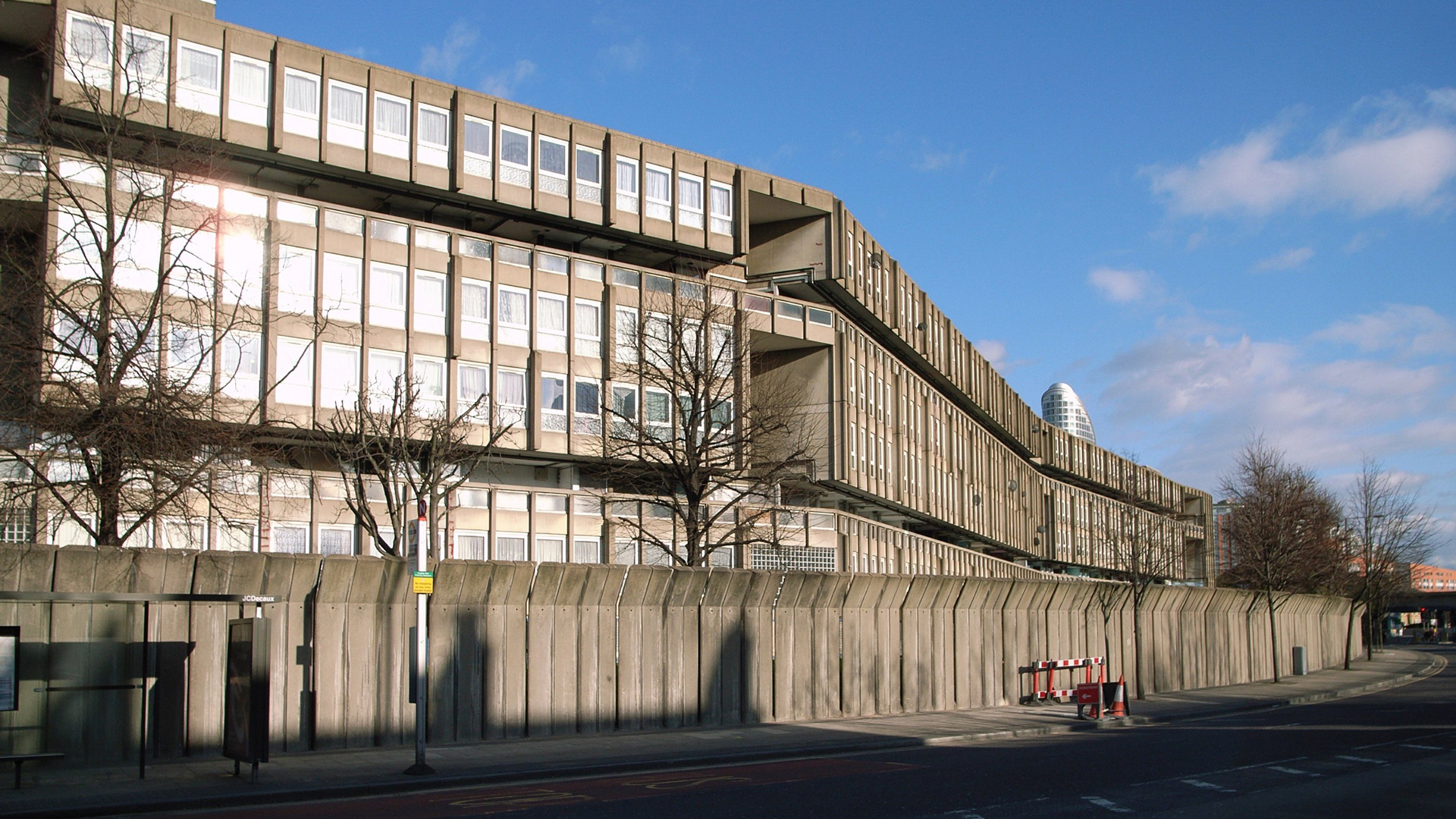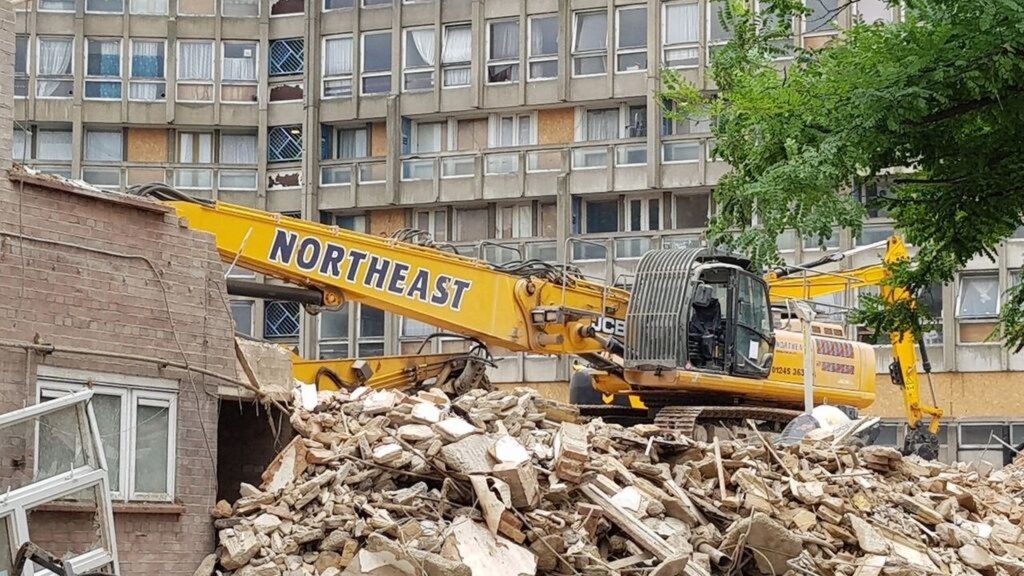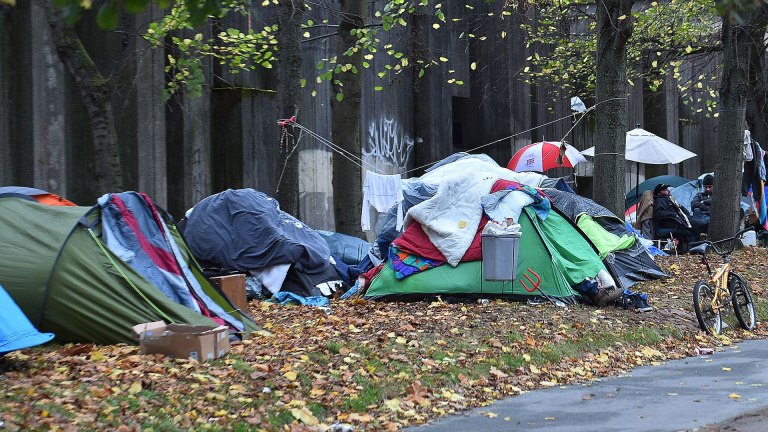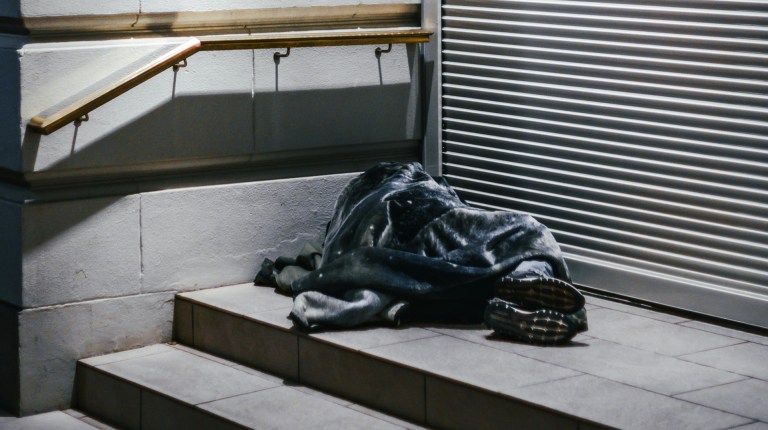It was one of the most notable of all of London’s post-war housing estates, a groundbreaking scheme offering working-class people in the east end the chance to live in “streets in the sky.”
But Robin Hood Gardens will soon be no more: the demolition of the estate in Poplar is now under way following a lengthy process of moving tenants and leaseholders out.
Last year The Big Issue detailed the process of clearing the estate of its residents. Some were moved into housing association properties at higher rents, while owner-leaseholders were offered sums that meant they struggled to buy again in the same area.
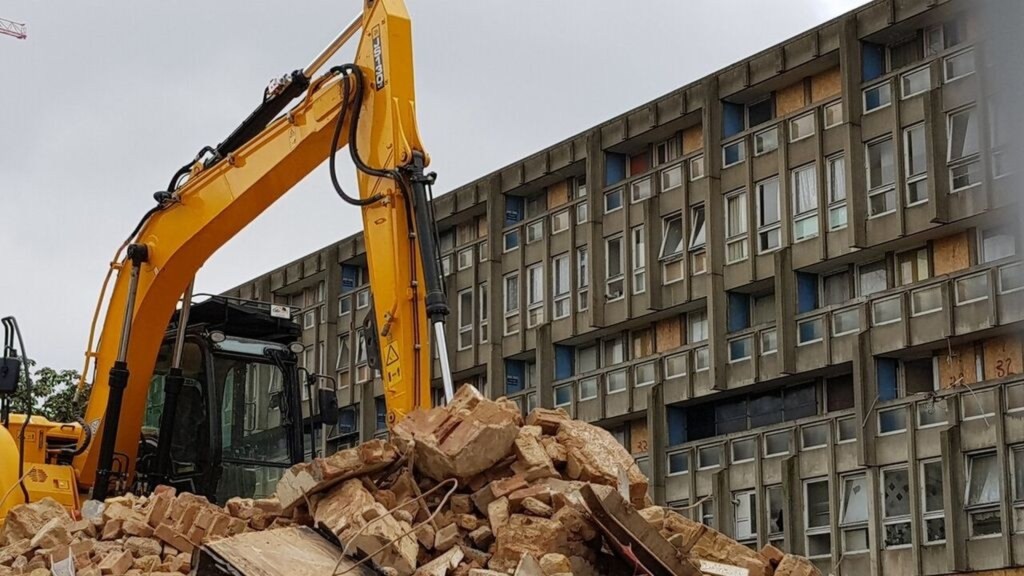
Now that the bulldozers have moved in on the Anderson House part of the estate, a different kind of community looks set to emerge at the site near Canary Wharf.
Robin Hood Gardens’ replacement, known as Blackwall Reach, will have 1,575 homes across an expanded area, but only 698 of the units (45%) will be “affordable”.
I’d lay money that within 15 years this area will be predominately middle-class
Swan Housing Association, charged with managing much of the regeneration process, told The Big Issue 80% of the affordable homes would be available for social rent, rather than “intermediate” rates. Swan’s development arm Nu living has been selling some of the replacement flats on the private market.
